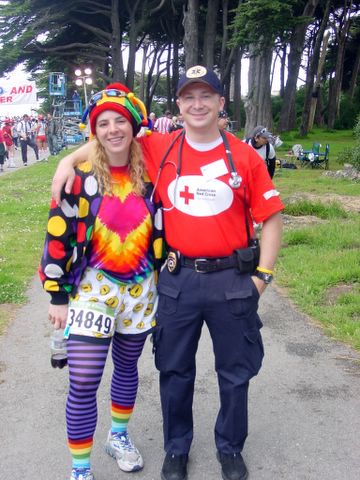Human perspective is an interesting thing.
Several years ago, I was driving with a friend of mine, approaching an intersection. As we both watched in muted amazement, a car exited the gas station, took a wide turn, and forced a truck onto the median. Other cars swerved about wildly, narrowly missing the errant vehicles. Luckily, or perhaps miraculously, there were no collisions.
Even though my friend and I were both in the same place, witnessing these events in front of our eyes, our interpretations of what actually happened were significantly different. We watched the incident from a similar vantage point, myself in the driver's seat and her in the passenger seat, and yet we spent the next 10 minutes attempting to agree on exactly what we had just seen.
How could it be that we had such divergent interpretations of the same event ?
One person's perception is just that - perception. It can be flavored by that person's own opinions, interpretations and life experiences, and can be vastly different between two people who witness the same events, the same conversations, the same relationship dynamics.
Yet, to each individual observer,
their perception is their reality.
My version of the near-accident was reality to me, as was my friend's to her. Whose was more accurate ? We will never truly know. We can certainly guess by asking every other witness - who each had their own versions - and hopefully find some common ground. But we'll never know for sure.
Another example of this is religious scripture. In all religions, there are significant variations in the interpretation of the sacred words. Some religions have a number of denominations which, although they agree on basic concepts such as the presence of a higher power, differ vastly in how to apply the concepts and events contained in the text to a way of life. As such, the doctrines of the world's religions cover a huge spectrum of practices and beliefs.
So who is truly
right ? Who is
wrong ? None of us will ever know. All we have are opinions, formed by our simple human minds; our perceptions of the elusive truth, which in turn become our version of reality. Only a higher power, if such an entity exists, can say for certain who is right or wrong. It is not up to us to make that determination.
"Judge not, lest ye be judged." How true that is - and how powerful it could be if more of us applied it to our everyday lives and interactions with others.
How many times have I heard people tell others, "You're too sensitive !" "Get over it !" "It wasn't that bad, forget about it !" These words grate on me like fingernails on a chalkboard. What the speakers are really saying is, "I judge your feelings to be unimportant."
How fair is it to judge how another person should feel ?
When it comes to emotions, there is no right or wrong. There is no black and white. There are only many, many shades of gray - each shade blended and molded by the unique perspective, experience and personality of the individual.
Every person is entitled to feel the way they feel. The word 'should', I believe, does not apply. Those who try to change someone's perception based on their own version serve only to invalidate the feelings of that person. Being at the receiving end of this, as I have been recently, is a painful place to be.
Respect. A word that embodies more facets and dimensions within the human relationship dynamic than this blog ever could handle. In this case, respect is acknowledging that a person feels the way they do, even if your perception is different from theirs. Respect is refraining from judging that person based on how you think they should feel. Respect is appreciating that person's perception for what it is - their personal reality.
Of course, there are times when a person is so focused on perceived wrongs against them, that they wallow in the status of being a victim, and refuse to take charge of their own reactions. They seem to prefer being the perpetual target of all the world's injustice, and complain loudly to anyone who will listen, while steadfastly refusing to take any action. Sometimes, respect can mean a gentle (but firm) kick in the butt to encourage that person towards empowerment.
We cannot control the actions of others, but we can control how we react to them. Sometimes, that means removing ourselves, as best we can, from a toxic relationship. Sometimes, that means accepting the other person for who they are, and choosing to allow their venom to roll off our backs. Sometimes, that means dealing with the anger, the hurt and the disappointment in whatever way we know how; then, seizing our power, rising above the disappointment, healing ourselves and moving forward.
Judgment is a choice. Respect is a choice. Empowerment is a choice.
In my life, I strive to respect others' feelings and their perceptions without judging them, even if my own perspective is different. I do my best to help others to empower themselves if they so desire. And, I elect to empower myself - to seize my own inner strength, to deal with and rise above that which has wounded me, and to live my life with a clear conscience and a healed heart.
That is the reality that I choose.











